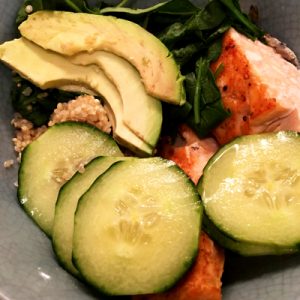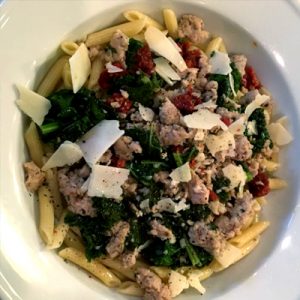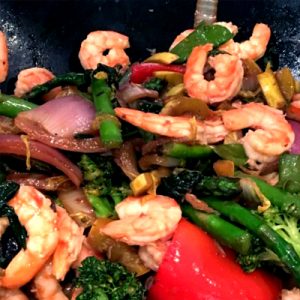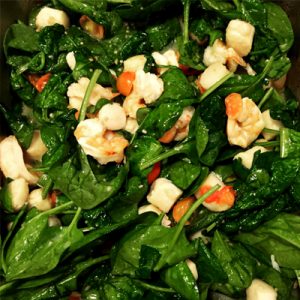To zinc or not to zinc? That is [INDEED] the question. And if you go by the headlines (which you naturally no longer have to, now that you have me), you likely have zinc whiplash. I read an article today extolling the benefits of Zinc for treating the cold – and mentioning one prominent researcher – but {cough cough}, they apparently didn’t notice that the same researcher had just released a study at the end of January 2020, showing minimal benefit to zinc.
So, where does that leave you? Because, y’all, it’s a [cold and flu] jungle out there. Schools closing because too many teachers and students are sick, half your family has been sick, and then your youngest comes home with a runny nose…
It’s enough to bring any parent to their knees.
So, let’s do a quick run-through of herbal cold and flu remedies.
Vitamins and Herbal Remedies:
Zinc
This therapy has been around since the 1970s, with conflicting evidence. Some studies show a benefit, while others show none. Here’s what you SHOULD know.
- Benefits: In those studies that DID show benefit, the Zinc was in the form of either Zinc acetate or Zinc gluconate, and they reduced cold symptoms duration by anywhere from 1-3 days.
- Risks: Adverse effects of zinc include vomiting (so ALWAYS take these supplements with food!) as well as a bad taste. The FDA has put a warning against the intra-nasal forms as they can cause loss of the sense of smell, so DEFINITELY avoid intra-nasal forms. Also, since the dose recommended to treat the cold is higher than what you’d want to take on a regular basis, only take Zinc for very short periods of time (like a 5-7 days, tops).
- If you want to try: Go for either the pill form (like this one from Nature Made), or lozenge form (like these from Cold-Eeze). Aim for 80mg – 100mg / day, which is what’s been found to be most effective in studies. Some studies suggest that the lozenge may be more effective because of the way it coats the throat, but you have to take it multiple times per day – and I’m still not sold. TBH, when I feel a cold coming on, I just take around 50 mg Zinc tablets twice a day, and go on with my day.
- Must-know info:
- Since Zinc can irritate the stomach, if you find that you are particularly sensitive, take it not only with food but also with an antacid such as Pepcid or Zantac
- NOTE – If you’re on prescriptions medications (including antibiotics), avoid Zinc supplements, as they can alter the absorption of your other medications.
- Avoid products that also have citric acid, which appears to negate the activity of Zinc.
Vitamin C
- Once cold symptoms have started, Vitamin C has not been shown to be better than placebo for treating symptoms.
- Benefits: That said, it may keep you healthy in the first place – one 5-year study in Japan showed that Vitamin C significantly reduced the frequency of colds, although it had no effect once the cold symptoms had begun.
- If you want to try:
- In the Japanese study, participants took 500mg Vitamin C daily. Of course – even better than a supplement, is getting all of that Vitamin C in food form – so eat up on those fruits and veggies!
Mushrooms (that’s medicinal mushrooms, relaxxxx)
- Benefits: There’s some evidence that increased mushroom consumption can boost immunity.
- If you want to try:
- Eat 1 shitake mushroom daily (as was done in the study mentioned above). Also, ad Maitake (also known as Hen of the Woods), and Turkey Tail mushrooms to your diet regularly.
- If you want to try a supplement, one to consider is Host Defense.
- Risks: Of course, like any supplement, avoid taking this if you’re taking any other prescription medication, and don’t take this for long periods of time without discussing with your doctor.
Echinacea
- Results of studies on echinacea are mixed – but that’s also in part because there’s not one universal species, component, or dose that everyone studies.
- Benefits:
- Treatment: Some studies have shown a mild decrease in symptom duration and intensity for patients who start echinacea after a cold starts, but most are pretty disappointing.
- Prevention: When it comes to prevention, some studies have shown small but promising benefits in terms of number of times a person was sick and duration of cold symptoms.
- Risks: Risks tend to be mild, generally linked to allergic reactions. That said, one study in children showed an increased risk of rashes in kiddos (and no, I don’t give this to my children).
- If you want to try it: Take it for cold prevention.
[/vc_column_text][vc_column_text]To zinc or not to zinc? That is [INDEED] the question. And if you go by the headlines (which you naturally no longer have to, now that you have me), you likely have zinc whiplash. I read an article today extolling the benefits of Zinc for treating the cold – and mentioning one prominent researcher – but {cough cough}, they apparently didn’t notice that the same researcher had just released a study at the end of January 2020, showing minimal benefit to zinc.
So, where does that leave you? Because, y’all, it’s a [cold and flu] jungle out there. Schools closing because too many teachers and students are sick, half your family has been sick, and then your youngest comes home with a runny nose…
It’s enough to bring any parent to their knees.
So, let’s do a quick run-through of cold and flu remedies – the herbal ones, as well as symptomatic treatments.
Vitamins and Herbal Remedies:
Zinc
This therapy has been around since the 1970s, with conflicting evidence. Some studies show a benefit, while others show none. Here’s what you SHOULD know.
- Benefits: In those studies that DID show benefit, the Zinc was in the form of either Zinc acetate or Zinc gluconate, and they reduced cold symptoms duration by anywhere from 1-3 days.
- Risks: Adverse effects of zinc include vomiting (so ALWAYS take these supplements with food!) as well as a bad taste. The FDA has put a warning against the intra-nasal forms as they can cause loss of the sense of smell, so DEFINITELY avoid intra-nasal forms. Also, since the dose recommended to treat the cold is higher than what you’d want to take on a regular basis, only take Zinc for very short periods of time (like a 5-7 days, tops).
- If you want to try: Go for either the pill form (like this one from Nature Made), or lozenge form (like these from Cold-Eeze). Aim for 80mg – 100mg / day, which is what’s been found to be most effective in studies. Some studies suggest that the lozenge may be more effective because of the way it coats the throat, but you have to take it multiple times per day – and I’m still not sold. TBH, when I feel a cold coming on, I just take around 50 mg Zinc tablets twice a day, and go on with my day.
- Must-know info:
- Since Zinc can irritate the stomach, if you find that you are particularly sensitive, take it not only with food but also with an antacid such as Pepcid or Zantac
- NOTE – If you’re on prescriptions medications (including antibiotics), avoid Zinc supplements, as they can alter the absorption of your other medications.
- Avoid products that also have citric acid, which appears to negate the activity of Zinc.
Vitamin C
- Once cold symptoms have started, Vitamin C has not been shown to be better than placebo for treating symptoms.
- Benefits: That said, it may keep you healthy in the first place – one 5-year study in Japan showed that Vitamin C significantly reduced the frequency of colds, although it had no effect once the cold symptoms had begun.
- If you want to try:
- In the Japanese study, participants took 500mg Vitamin C daily. Of course – even better than a supplement, is getting all of that Vitamin C in food form – so eat up on those fruits and veggies!
Mushrooms (that’s medicinal mushrooms, relaxxxx)
- Benefits: There’s some evidence that increased mushroom consumption can boost immunity.
- If you want to try:
- Eat 1 shitake mushroom daily (as was done in the study mentioned above). Also, ad Maitake (also known as Hen of the Woods), and Turkey Tail mushrooms to your diet regularly.
- If you want to try a supplement, one to consider is Host Defense.
- Risks: Of course, like any supplement, avoid taking this if you’re taking any other prescription medication, and don’t take this for long periods of time without discussing with your doctor.
Echinacea
- Results of studies on echinacea are mixed – but that’s also in part because there’s not one universal species, component, or dose that everyone studies.
- Benefits:
- Treatment: Some studies have shown a mild decrease in symptom duration and intensity for patients who start echinacea after a cold starts, but most are pretty disappointing.
- Prevention: When it comes to prevention, some studies have shown small but promising benefits in terms of number of times a person was sick and duration of cold symptoms.
- Risks: Risks tend to be mild, generally linked to allergic reactions. That said, one study in children showed an increased risk of rashes in kiddos (and no, I don’t give this to my children).
- If you want to try it: Take it for cold prevention.
[/vc_column_text][/vc_column][/vc_row][vc_row type=”in_container” full_screen_row_position=”middle” scene_position=”center” text_color=”dark” text_align=”left” overlay_strength=”0.3″ shape_divider_position=”bottom” bg_image_animation=”none”][vc_column column_padding=”no-extra-padding” column_padding_position=”all” background_color_opacity=”1″ background_hover_color_opacity=”1″ column_link_target=”_self” column_shadow=”none” column_border_radius=”none” width=”1/1″ tablet_width_inherit=”default” tablet_text_alignment=”default” phone_text_alignment=”default” column_border_width=”none” column_border_style=”solid” bg_image_animation=”none”][vc_column_text]
For the details on what all those OTC cough/cold meds are, see this blog – and for my Cold and Cough Cheat Sheet – go here!
[/vc_column_text][/vc_column][/vc_row][vc_row type=”in_container” full_screen_row_position=”middle” scene_position=”center” text_color=”dark” text_align=”left” overlay_strength=”0.3″ shape_divider_position=”bottom” bg_image_animation=”none”][vc_column column_padding=”no-extra-padding” column_padding_position=”all” background_color_opacity=”1″ background_hover_color_opacity=”1″ column_link_target=”_self” column_shadow=”none” column_border_radius=”none” width=”1/1″ tablet_width_inherit=”default” tablet_text_alignment=”default” phone_text_alignment=”default” column_border_width=”none” column_border_style=”solid” bg_image_animation=”none”][vc_column_text]Disclaimer: I’m sure you know this already, but you know that I have to say it. Just like with ANY medication you take, you must be careful with all supplements. I always say that if something is strong enough to *help* you, then it’s also strong enough to *harm* you – meaning, just because it’s “natural” or a “supplement”, doesn’t mean you shouldn’t be just as careful. If you’re taking other medications or being treated for any conditions, don’t take supplements without talking to your doctor. In fact, while you’re at it- discuss ALL supplements with your doctor, and never take any for a long-term period without their support and guidance. Of course, you also know that all the guidance I give here is general health guidance, and cannot be interpreted as personal medical advice.[/vc_column_text][/vc_column][/vc_row]







